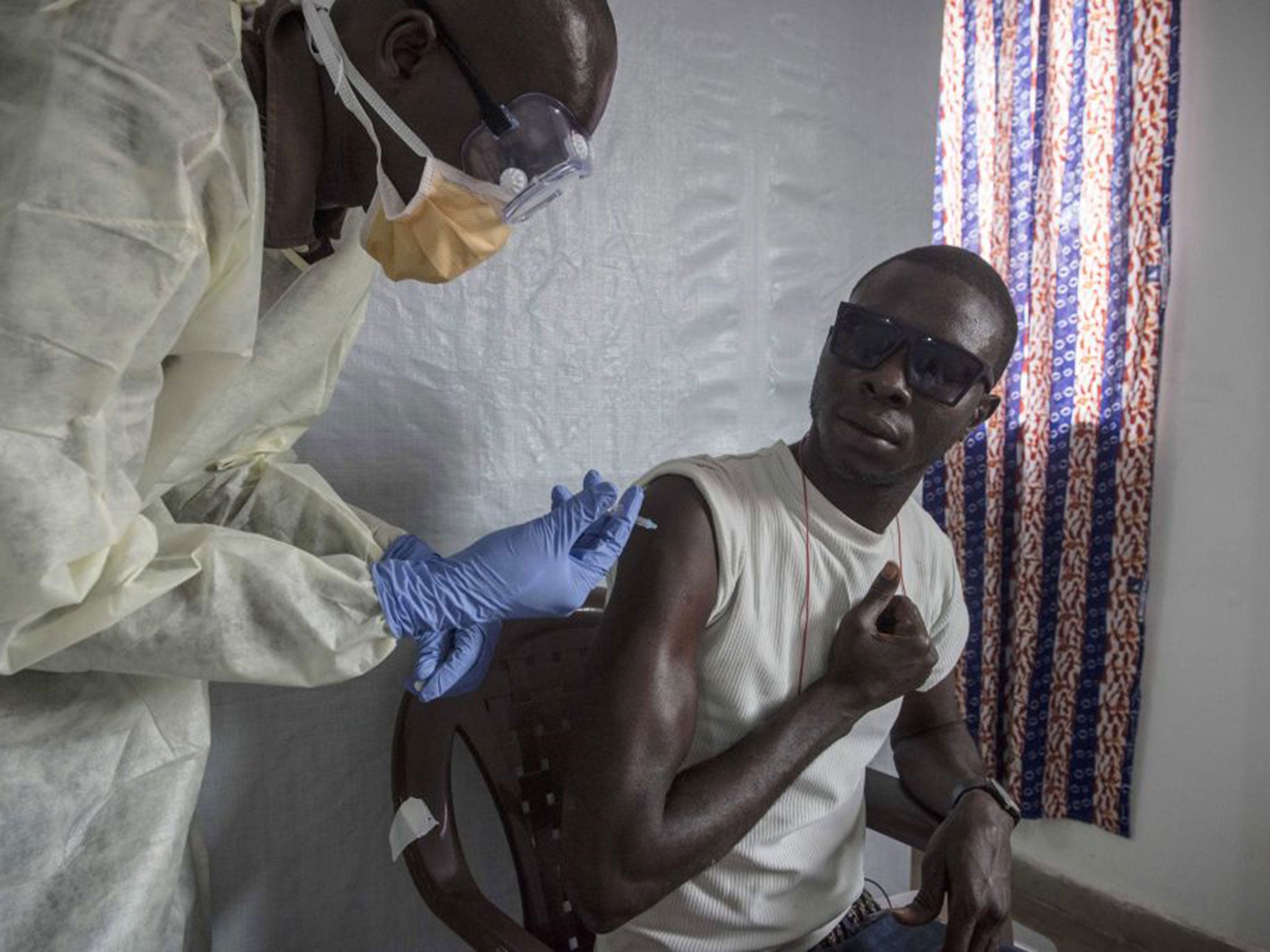Ebola lives in semen for nine months, scientists say, as new outbreak is feared
Scientists are still unsure how long the virus can stay in other bodily fluids, including in women

The Ebola virus can last in men’s semen for at least nine months after it has apparently disappeared, and passed on through bodily fluids, researchers have said.
A huge new study shows that the virus can live on long after it was thought. Previous advice recommended that survivors abstain from sex or use a condom for the three months after they recovered from the virus — but it is still present in some people six months after that.
Scientists have recently expressed surprise at the way that the virus can stay in different parts of the body, including in survivors’ organs, long after it has apparently left. That appears to be what has happened to Pauline Cafferkey, the Ebola nurse who is once again in a critical condition nearly a year after her initial recovery.
In the new study, researchers found the Ebola virus in the semen of nearly two-thirds of participants after six months, and in more than a quarter after nine months. That could mean that new outbreaks could happen if it is transmitted through sexual activity — long after an outbreak appears to be over.
Around half of the 16,000 people who survived the disease in Sierra Leone, Guinea and Liberia are male.
"There are thousands of survivors of EVD (Ebola virus disease) in western Africa, and many are sexually active men,” the researchers said. “Sexual transmission of the Ebola virus could possibly result in new outbreaks several weeks or months after all known chains of transmission in the region have stopped."
The passage of Ebola through semen is one of the biggest worries for medical professionals. While some precautions have been taken against it, experts say that it might be one way that the apparently beaten virus will return.
The World Health Organisation currently tests Ebola survivors every month, and offers counselling to ensure that male survivors and their partners know about the risks.
But the researchers say that there should be more programmes to provide testing and warnings.

They said that: "Such programmes would help men and women understand their individual risk and take appropriate measures to protect their sexual partners, specifically in regard to condom use and disposal, and could provide links to care and counselling programmes for survivors.
"Because semen-testing programmes are not yet universally available, outreach activities are needed to provide education regarding recommendations and risks to survivor communities and sexual partners of survivors in a way that does not further stigmatise the community of survivors of EVD."
It is also still not clear whether it lives on for similar periods in other bodily fluids, including those of women. The researchers say that more research is needed on how long the virus can last in other places.
"Even though there have been only rare cases of EVD linked to sexual transmission, research is needed to investigate whether infectious virus may be present in vaginal fluid or other body fluids after recovery, and the testing of additional body fluids in both male and female survivors is planned," the study said.
Join our commenting forum
Join thought-provoking conversations, follow other Independent readers and see their replies
Comments